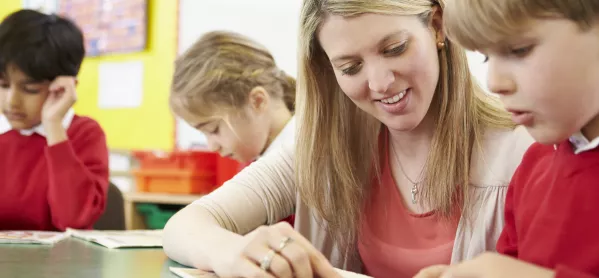We all know that laughter is good for us and there were several times in the past week when I laughed out loud with children. These all came during the same activity - individual reading with children.
Individual reading is one of the most enjoyable and effective ways of teaching reading, and the children love it - as I do. Children follow me around the classroom asking when I am going to read with them and they tell me how long it was since they last read with me. Even the most reluctant reader has been inspired with one-to-one reading sessions.
Yes, it is time-consuming and needs organisation, but it is one of the best and quickest ways to improve standards in reading. All my classes have this at the core. Every child will read regularly with me, as the class teacher, as well as with other staff members. Some read daily, some weekly but they all get the opportunity to do this on top of other reading activities.
Individual reading: the benefits
Why is it so important to make time for this? There are many reasons. For many children, this may be the only time they have to share a book with an adult. Their choice of book matters; it shows me their interests, which can then be followed up in class. Support can then be given at the level that the child needs. Children can be moved on when ready and encouraged to read challenging texts that they might not have chosen.
Individual reading also highlights gaps in teaching that can be filled during class sessions; it allows the modelling of expression and pace; it lets you share beautiful illustrations and discuss interesting names and new words.
You witness children’s reactions to the text that you weren’t expecting. For example, I once had a child shout out, “It’s a magic door!” in the middle of their reading with me, which silenced the whole room. You see their excitement as something unexpected happens, and then you find out that they go blackberry picking or help to fix cars.
Other children will often come and look at what book is open and comment on it, which starts a conversation, like a mini book group - but the children also know to “respect the reader” and not to interrupt unnecessarily.
Meanwhile, the rest of the class are actively engaged in independent learning supported by the classroom environment and provision.
Getting to know your pupils
The books in my reading scheme cover all areas of the curriculum. In the past week we have read quality fiction books that cover issues such as friendship, new challenges, courage and resilience. Non-fiction texts have included learning about bees, autumn, Hinduism and rivers. There are poetry books, too.
Through individual reading, I have discovered children who are interested in cooking or looking after animals, or who care for a member of their household; children who are natural actors and storytellers; children who want to go to the Moon or build amazing structures; children who just want someone to talk to. The sharing that happens during this activity fosters a respectful and supportive relationship between the pupil and the adult.
Giving time to children and talking with them is now more important than ever. No matter what the the pressures of the curriculum, ringfencing an hour a day to read with individuals is an effective and pleasurable way of teaching reading that will help you get to know children far better than any traditional comprehension activity.
Nicola Fosker is a key stage 1 teacher based in south-west London. She tweets @Immersed_in_KS


